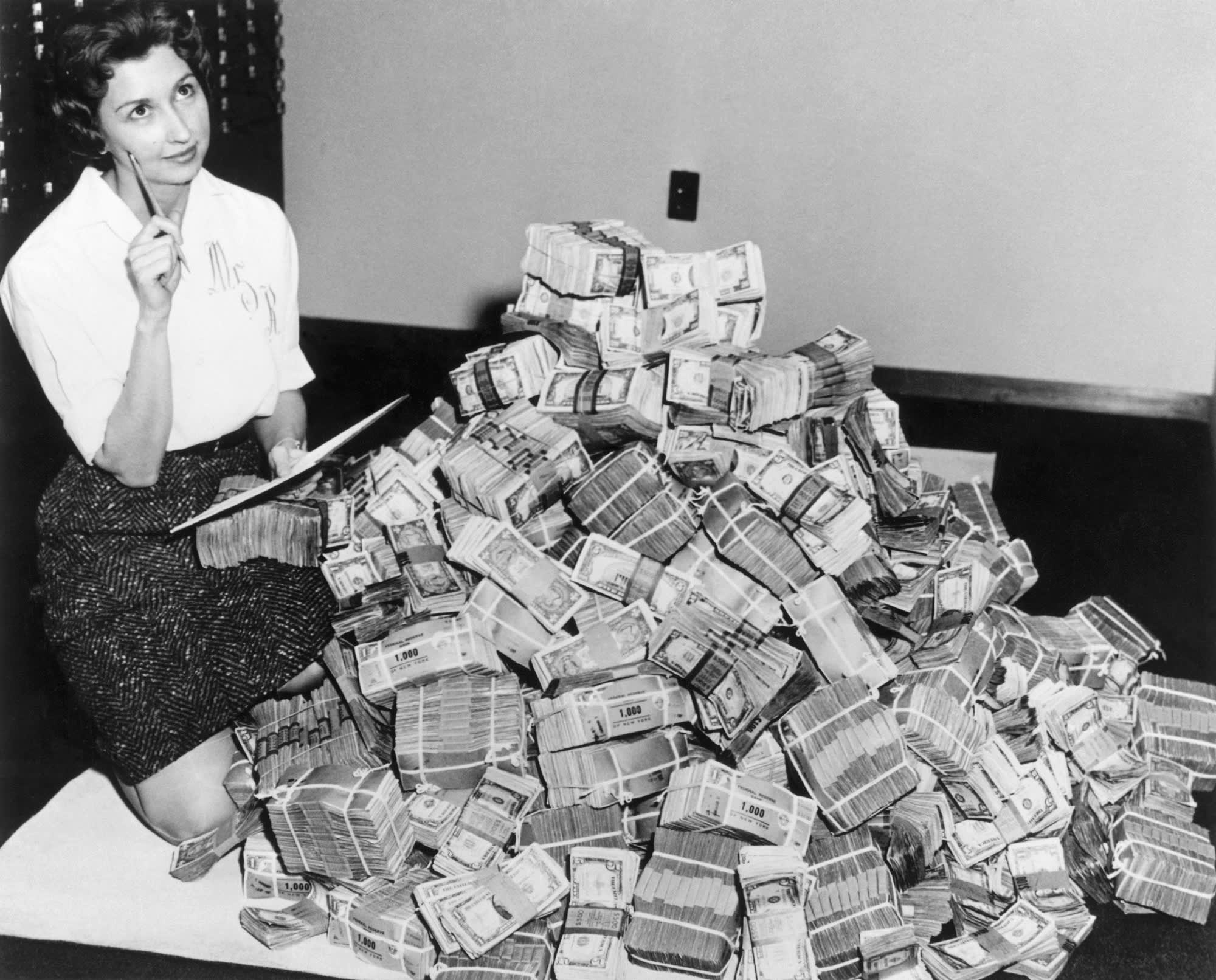Bettmann | Getty Images
It’s natural to want to strengthen your safety net in an emergency.
For many, that means having extra cash on hand, whether that’s in the bank, in your wallet or both.
That’s especially relevant now, as news headlines change by the minute. Meanwhile, the Federal Reserve cutting interest rates to near zero means you will receive even less interest on your deposits.
However, experts say the best place to keep your emergency fund is still in an online savings account.
“Online savings accounts have the best returns, so you can preserve the buying power of that money,” said Greg McBride, chief financial analyst at Bankrate.
Even as interest rates fall, there are still plenty of online accounts paying around 1.5% interest, McBride said.
Though those rates will come down, they will still be “head and shoulders above” what you would earn at most brick-and-mortar banks or in a money market fund, he said.
Even if you’re just getting started, it’s never too late to build your emergency savings.
Having that stash of extra cash means you’ll be ready when an unexpected expense – or an unforeseen opportunity – arises.
“You want emergency savings that is going to be like your spouse,” McBride said. “It is going to be your partner for life.”
Experts generally recommend having at least six months’ worth of living expenses on hand. If you’re a business owner or sole breadwinner, nine to 12 months is more ideal, McBride said.
These tips can help you make sure you’re managing your money wisely to cover your cash needs in emergency times.
Be wary of selling stocks to cover your needs
You may be tempted to turn to your investments now to cover your immediate funding needs.
However, think twice before you do that, warned certified financial planner Douglas Boneparth, president and founder of Bone Fide Wealth in New York.
Those asset prices are falling, and if you sell now, you lock in those losses, he said.
“You’re weighing a short-term need for an emergency against long-term growth,” Boneparth said. “You want to be careful, especially when it comes to long-term money and retirement assets.”
How much you want to have in your wallet
Unprecedented times can call for unprecedented measures. For many people, that can mean having more cash in their wallets and at home to make them feel more secure.
“I think the prospect of natural disasters and things like that make it prudent to always have some cash on hand,” McBride said.
But be prudent about how much physical cash you actually put aside.
More from Personal Finance:
Tax deadlines are likely to change. What you need to know
These financial moves can help you prepare for a recession
What the Fed cutting interest rates to zero means for you
If your money is lost or stolen, there’s no way to get that money back, McBride said.
“Money in the bank is federally protected, but money in your wallet or stuffed under the mattress does not carry any protections,” McBride said.
It makes sense to have cash on hand, but keep in mind that it doesn’t have to be your whole life savings, Boneparth said.
“Think about what you might need to facilitate a few weeks, or perhaps even a month, worth of purchases and at most hold that amount,” Boneparth said.
Make it a habit to pay yourself first
If you do not make saving a habit, you likely won’t be able to successfully build an emergency fund.
The best way to make sure you get it done: Set up a direct deposit from your paycheck into a dedicated savings account, McBride said.
“That way, the savings happens even before you roll out of bed on payday morning,” McBride said.
If instead you wait to put the funds in the account after you’re paid, you run the risk that you won’t have the money or will make deposits inconsistently, he said.
Make sure your account is federally insured
Having insurance from the the Federal Deposit Insurance Corp. on the money you’ve put into savings is key. That way, up to $250,000 of your deposit is typically covered per bank.
You can verify your bank is covered by going to the FDIC website, McBride said. Often, you financial institution will include the name under which they are listed with the FDIC at the bottom of their website.
It’s also important to pay attention to what kind of account you have.
Money market funds are generally considered safe, McBride said. But during the 2008-09 Financial Crisis, one large fund broke the buck, meaning its net asset value fell below $1.
Consequently, you might want to think twice before putting your emergency cash in one of those funds.
“It’s a great parking place in your brokerage account if you’re looking to buy stocks that have been hit,” McBride said of money market funds. “But if you’re looking to pay the rent, and you’re not sure you’re going to have a paycheck to do it, make sure it’s in a federally insured savings account.”
